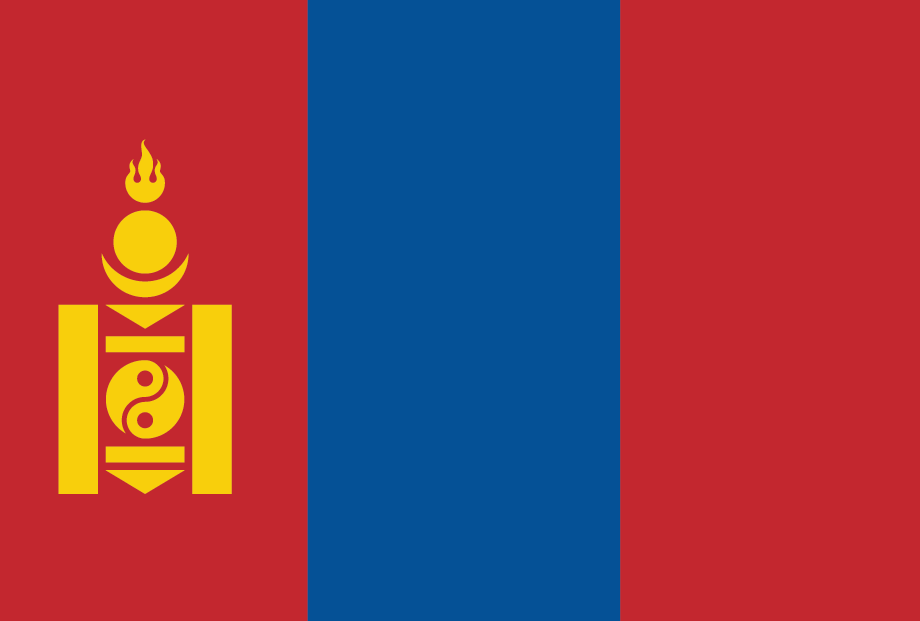
Sustainability Efforts
Country: Mongolia
Explore sustainability efforts in Mongolia. The United States Environmental Protection Agency (“EPA”) said it well when they state:
“Sustainability is based on a simple principle: Everything that we need for our survival and well-being depends, either directly or indirectly, on our natural environment. To pursue sustainability is to create and maintain the conditions under which humans and nature can exist in productive harmony to support present and future generations.”
About Mongolia
Mongolia, located in Central Asia, is a vast and sparsely populated country known for its nomadic traditions, breathtaking landscapes, and rich cultural heritage. It offers wide open steppes, rugged mountains, and the Gobi Desert. Mongolia’s nomadic lifestyle, showcased through traditional gers (yurts) and horseback riding, is a unique experience. The capital, Ulaanbaatar, blends modernity with historical sites like the Gandan Monastery. Mongolian cuisine includes hearty dishes like buuz (dumplings) and airag (fermented mare’s milk). The country’s diverse wildlife includes wild horses and the elusive snow leopard. Mongolia’s untouched natural beauty and cultural authenticity make it a destination for adventure seekers and those interested in immersing themselves in a unique way of life. Sustainability efforts in Mongolia will enhance the country’s future.
Sustainability Efforts
Toggle each button below to “open” and “close” the presented data.

In terms of poverty reduction, the Government of Mongolia has implemented programs and social welfare initiatives. The poverty rate has shown improvement, decreasing from 38.8% in 2014 to 28.4% in 2018, according to the World Bank.

To combat hunger, Mongolia has made progress in reducing the prevalence of undernourishment from 19.9% in 2002 to 11.9% in 2019, as reported by the FAO. The government has implemented programs like the National Program on Food Security to improve food security.

In the healthcare sector, Mongolia has been working to improve access to and the quality of healthcare services. Increased investment in infrastructure, medical equipment, and services has contributed to advancements. Mongolia has seen improvements in reducing infant and child mortality rates, enhancing vaccination coverage, and combating infectious diseases.

Education is a priority for Mongolia, and efforts have been made to increase access to education. Infrastructure development, teacher training, and curriculum improvements have been key focus areas. The country has achieved near-universal primary education, with a net enrollment rate of 98.7% in primary schools according to UNESCO (2018).

Regarding gender equality, Mongolia has made significant strides in promoting women's empowerment. Policies and legislation have been adopted to combat gender-based violence, promote women's rights, and increase their representation in decision-making roles. In the Global Gender Gap Report 2021, Mongolia ranked 43rd out of 153 countries according to the World Economic Forum.

Efforts are being made to improve access to clean water and sanitation services, particularly in rural areas. The government has implemented projects to enhance infrastructure, water management, and sanitation facilities. In 2017, 95.6% of the population had access to improved water sources, as reported by the Joint Monitoring Programme for Water Supply, Sanitation, and Hygiene.

Mongolia recognizes the potential of renewable energy sources and has implemented policies and incentives to promote their development. Renewable energy accounted for approximately 15% of Mongolia's total energy consumption in 2021, according to the International Renewable Energy Agency.

Mongolia aims for sustainable economic growth by diversifying and investing in key sectors. Economic reform programs have been implemented to attract foreign investment, promote private sector development, and improve the business environment. Mongolia experienced an average annual GDP growth rate of around 5.6% between 2010 and 2019, as reported by the World Bank.

To foster industry innovation, Mongolia has launched initiatives to support research and development, entrepreneurship, and innovation in various sectors. Collaboration between academia, industry, and government institutions is being encouraged to drive innovation.

Efforts are being made to reduce inequalities in Mongolia, particularly in terms of income distribution, access to services, and opportunities. Social welfare programs, poverty reduction initiatives, and improvements in education and healthcare contribute to reducing inequalities.

Sustainable urban development is a focus area in Mongolia. Efforts are underway to improve urban planning, infrastructure, transportation systems, waste management, and green spaces. Energy efficiency in buildings, sustainable construction practices, and pollution reduction in cities are also being emphasized.

To promote responsible consumption and production patterns, Mongolia is raising awareness about sustainable consumption, waste management, and recycling. The government encourages sustainable production practices, resource efficiency, and the use of eco-friendly technologies.

Mongolia is committed to addressing climate change through measures to reduce greenhouse gas emissions, increase renewable energy production, and improve energy efficiency. The country ratified the Paris Agreement in 2017 and has developed its Nationally Determined Contributions (NDCs).

In terms of the aquatic environment, Mongolia undertakes initiatives to address water pollution, protect freshwater ecosystems, and promote sustainable water resource management. The government collaborates with international organizations and stakeholders to improve monitoring and conservation efforts in the aquatic environment.

Preserving the natural environment is a priority for Mongolia. The country has established protected areas, national parks, and wildlife reserves to conserve ecosystems and protect wildlife species. Efforts are being made to combat desertification, promote sustainable land management, and restore degraded landscapes.

In terms of peace and justice institutions, Mongolia recognizes their importance in ensuring a fair and equitable society. The country has a functioning judicial system and strives to enhance its efficiency, transparency, and accessibility. Efforts are made to strengthen the rule of law, protect human rights, and combat corruption.

Mongolia actively engages in partnerships and international cooperation to achieve the Sustainable Development Goals (SDGs). The government collaborates with international organizations, donor agencies, and civil society to implement projects and share best practices. Mongolia actively participates in regional and global initiatives to address common challenges and achieve sustainable development.



